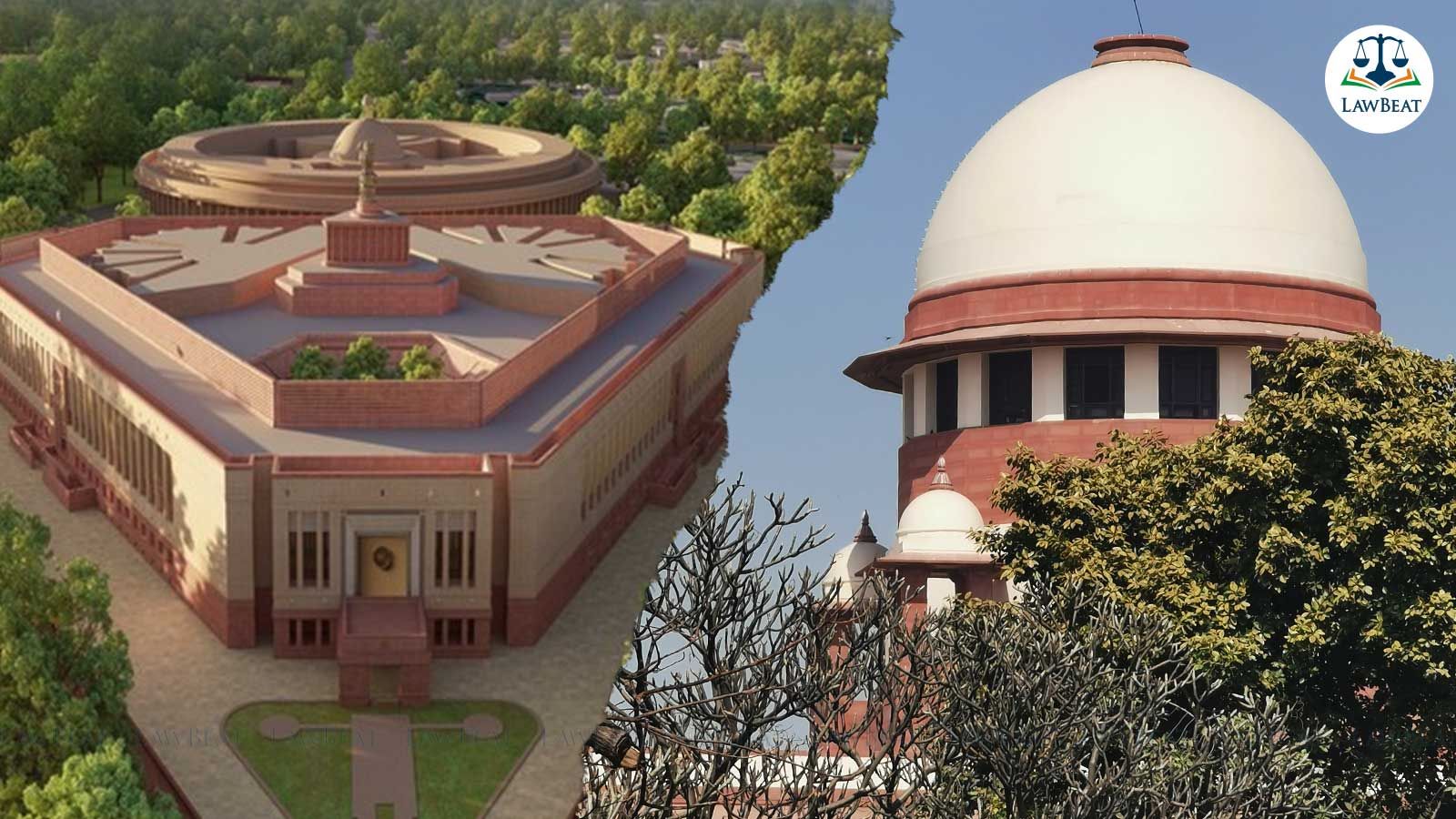At long last, the Indian Parliament has signalled that it will no longer play second fiddle to the judiciary when it comes to making laws. In a much-needed assertion of constitutional propriety, the Centre has made it abundantly clear to the Supreme Court: legislation is the sole prerogative of the Legislature, not a domain for judicial overreach. And the judiciary, as per the constitutional scheme, may only review laws, not suspend or rewrite them.
The Centre’s stand came in response to a slew of petitions challenging the constitutional validity of the Waqf Act, 2025. In a 1,332-page preliminary counter-affidavit, the government asked the Supreme Court to dismiss the pleas and categorically opposed any “blanket stay” on the law, reminding the court that every law enacted by Parliament carries a presumption of constitutionality—a cornerstone of democratic jurisprudence.
This is not just a legal technicality. It’s a timely wake-up call. As Vice President Jagdeep Dhankhar—himself a constitutional authority and Chairman of the Rajya Sabha—has rightly flagged in unambiguous terms, the judiciary cannot assume legislative functions. If courts wish to legislate, they must first get elected.
The Centre’s affidavit, filed by Shersha C Shaik Mohiddin, Joint Secretary in the Ministry of Minority Affairs, is both damning and enlightening. It reveals that since 2013, over 20 lakh hectares have been mysteriously added to waqf properties—a near doubling of what was historically recorded. To put it in perspective, the affidavit notes that across the Mughal, colonial, and post-independence eras, a total of 18.29 lakh acres were registered as waqf land. So, how did 20 lakh hectares suddenly appear after 2013?
The affidavit bluntly calls out the “misuse” of previous laws to encroach upon private and government lands. It rightly asserts that the new law aims to correct this by ensuring accountability in the administration of religious endowments without trampling upon religious freedoms. It further clarifies that these petitions are based on a false assumption that the amendments infringe upon Article 25 or other fundamental rights. They do not.

More importantly, the government underscored a foundational legal principle: courts do not enforce laws—they test their validity. The affidavit states, “Settled position in law [is] that constitutional courts would not stay a statutory provision… There is a presumption of constitutionality that applies to laws made by Parliament.”
If that sounds like a lesson in basic civics for the judiciary, it probably is. For far too long, courts have stepped into legislative terrain—whether by issuing directives with the force of law or by entertaining pleas to “freeze” duly enacted statutes. This not only violates the doctrine of separation of powers but also creates dangerous precedents where unelected judges can paralyze elected governments.
The Centre’s move is backed by democratic consensus. The amendments to the Waqf Act were not pushed through in haste. They were vetted by a parliamentary panel with members from all major political parties. The goal? To ensure that religious trusts are governed transparently and do not become instruments of land appropriation or political appeasement.
To its credit, the Centre has also agreed to pause certain waqf-related administrative actions, such as de-notifying properties or making appointments, until May 5, when the Supreme Court bench led by Chief Justice Sanjiv Khanna will take up the matter. That said, such deference should not be mistaken for submission.
Because at its core, this is about constitutional boundaries. Parliament enacts laws. Courts interpret them. But courts cannot suspend laws just because a few find them inconvenient.
One hopes the judiciary heeds the message. That is not to suggest influencing a pending verdict. But when the aggrieved can take to the streets and pressure both the Legislature and the Judiciary, what’s wrong in saying that both Constitutional bodies must introspect? After all, the Legislature has exhaustively justified its actions as a democratically elected body committed to delivering good governance. Perhaps it is time to revisit the very architecture of Articles 13 and 32—if not through constitutional amendment, then at least through robust public discourse.
For now, kudos to the Modi government for standing its ground. This affidavit isn’t just a legal document—it’s a mirror to judicial overreach. And it reflects the will of the people.





